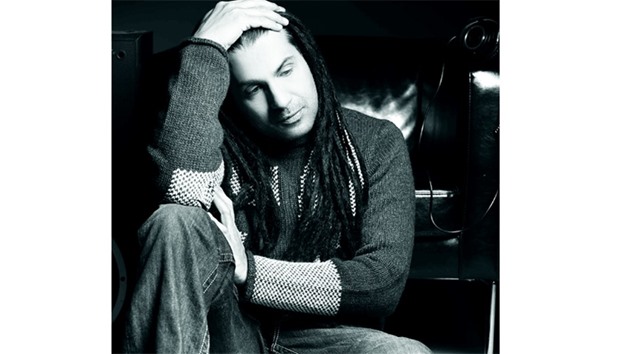Gone is the buzzed fade hairstyle and baggy fashion that he championed back in the ’90s. Now it’s dreadlocks dangling and swerving to the beats as if they have a mind of their own. Togged in red shirt and denims, Apache Indian looked like an updated version of the bhangra-muffin star that we all knew him to be as he stormed the stage at Qube, Radisson Blu Doha, on the weekend, and powered through a groovy hour-long set.
Featuring his biggest hits and some funky, foot-tapping collaborations, the British singer-songwriter took the audience on a sweet ragga trip down memory lane. Community caught up with the Boom Shack-A-Lak star for a chat.
You seem to put out the same energy and passion as you did 20 years ago. How have you managed to keep that alive?
First off, it’s been great to be here in Doha and perform for the first time. I try to keep the same energy and the same vibe especially with these songs as they were made with the same energy. When you have songs like Arranged Marriage and Chok There, I try to deliver them on stage with that same energy and people hear it and say — Wow, it sounds great. I want them to hear live vocals. I am enjoying myself and giving it everything I’ve got when I am on stage, just like I did 20 years ago. People appreciate that I am working hard and giving my best.
You have been touring a lot all over. You were in Colombo before you flew down to Doha and you are off to the US now. How is touring today different?
There’s a lot more emphasis on touring now than before. The reason is because that’s where the money is as well. We have lost a lot of money with the rise of Internet and online downloads. Touring is important because people pay money to come to your shows and you get to reach out to your fans. I am glad I have got that kind of training from the beginning, from the early ’90s. And now, I have got the experience. I feel more comfortable.
I have a live band set up and there’s a DJ. It’s fantastic to be able to perform with live musicians and go around the world. The best part of it is that I could be in a reggae show one day, in a world music show the next day, and in an Indian show the following day in a totally different part of the world. Two things I love doing are recording songs and performing. Everything in between, like making videos, is kind of whatever. I love writing songs and I really love performing because you can see your fans, their reactions, how they dance, their passion, and that is what music means to me.
What kind of music are you focusing on these days?
I released a six-track EP, about six weeks ago. With it, I want to focus on the reggae market and not just the Asian and the Indian market. It’s great to have songs that are for a diverse mix of fans but sometimes, you need to cater specifically to the market. This record is very much reggae and has got a very commercial edge to it. I can perform it everywhere but it is focused on Jamaica and it’s been received very well there. The tracks are played every day, all over the radio in Jamaica. So I am very happy about it. This album is for reggae fans all over the world and is set to release in January 2017. I want to call it On the Weekend.
Looking back, how do you see your journey thus far? Having been at the forefront of the bhangra-muffin genre of music, do you feel a sense of accomplishment?
My musical style was very personal, where I mixed Indian and reggae sounds together. Coming from Birmingham in the UK, I didn’t really think it was going to be a popular sound. I didn’t create a formula or sound for the world or to be a big artiste.
Since it’s a personal style, when anyone likes it, I feel great. That’s because it comes from my experiences, being in the UK, my history with India, and my love for reggae music. So I have been with that sound over the years, around the world seven times over. My music has been on the British charts, and eight Hollywood movies —from Dumb and Dumber to Scooby-Doo 2: Monsters Unleashed. That music has created that genre. When I started, there was either bhangra or Hindi or reggae or pop.
Now this Urban Asian sound has become a whole new genre. Now we have so many artistes around the world doing rap or mixing Hindi, pop and reggae, and it all comes back from Chok There and Arranged Marriage. In the UK, it’s a massive genre.
I am glad to have been part of that movement from the beginning. 26 years later now, it’s fantastic and we now have three generations of fans who are following the music.
It means more to them than music. They remember when those songs were released and what it meant for them then whether they were in college or wherever they were in the world, how it broke down the barriers between communities and brought people together. That’s what it did for us in the UK, in Toronto, in the US. It was a real force for the community.

THE SECOND COMING: Apache Indian
